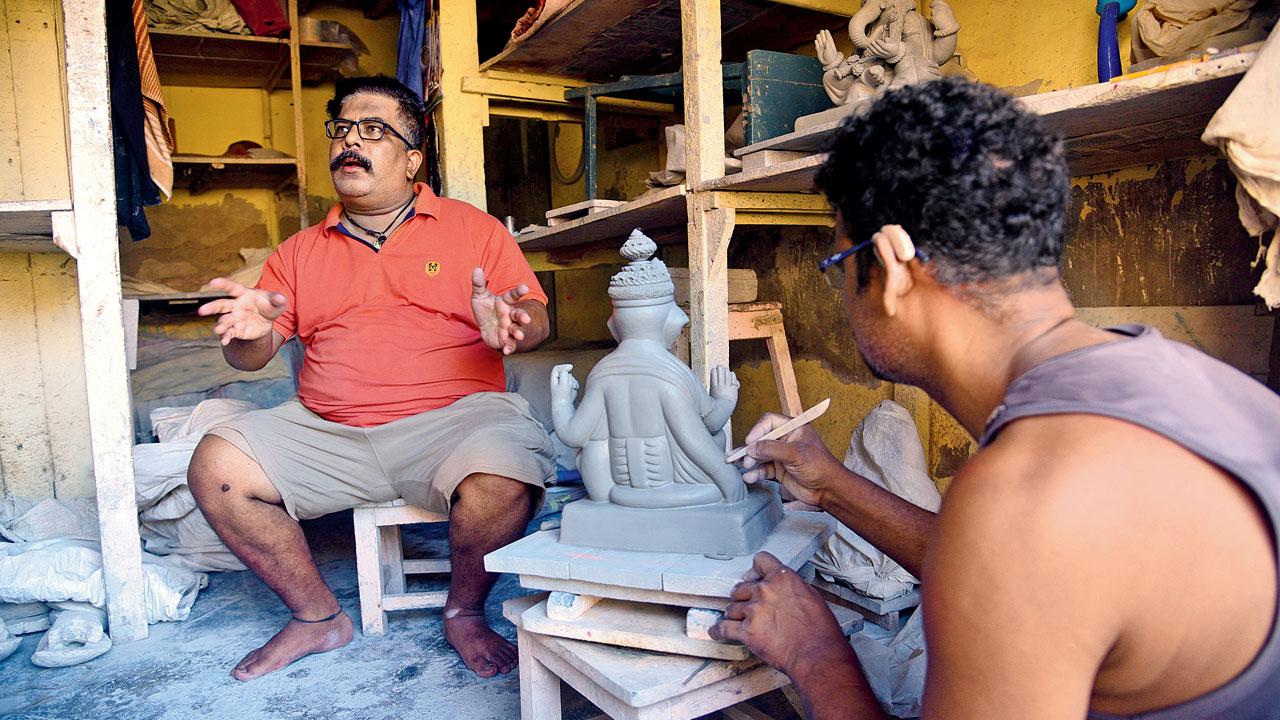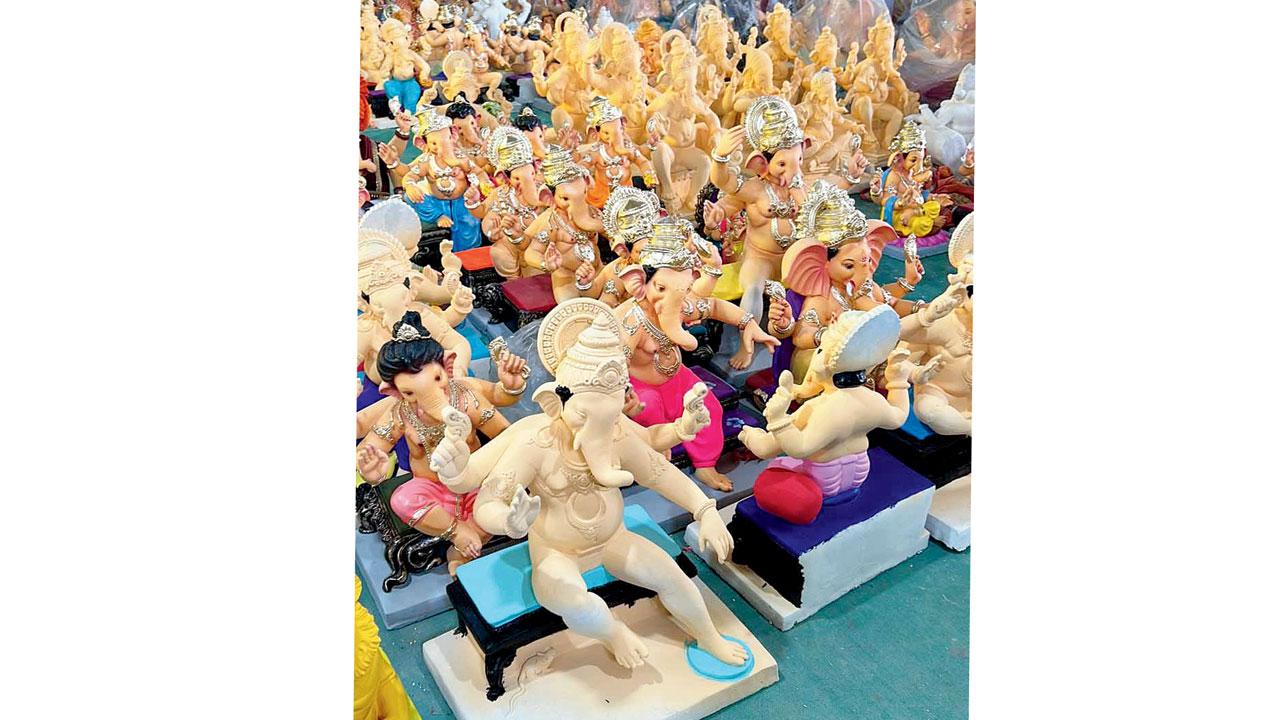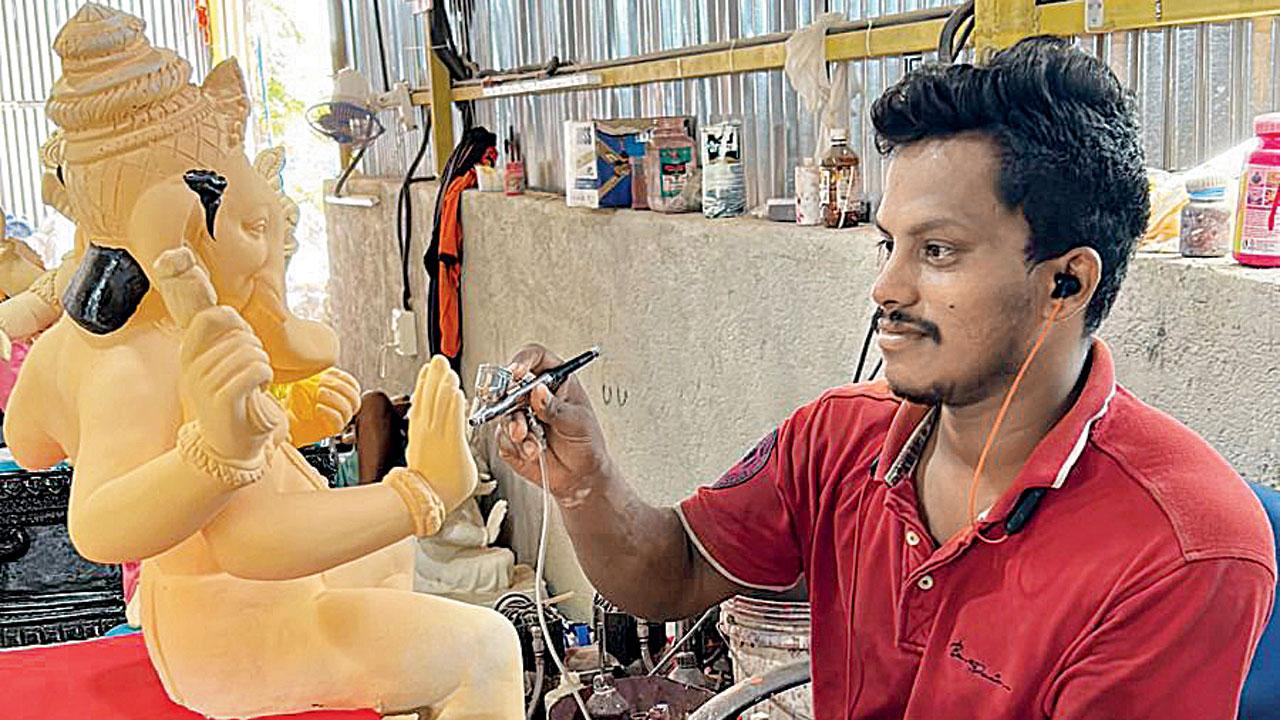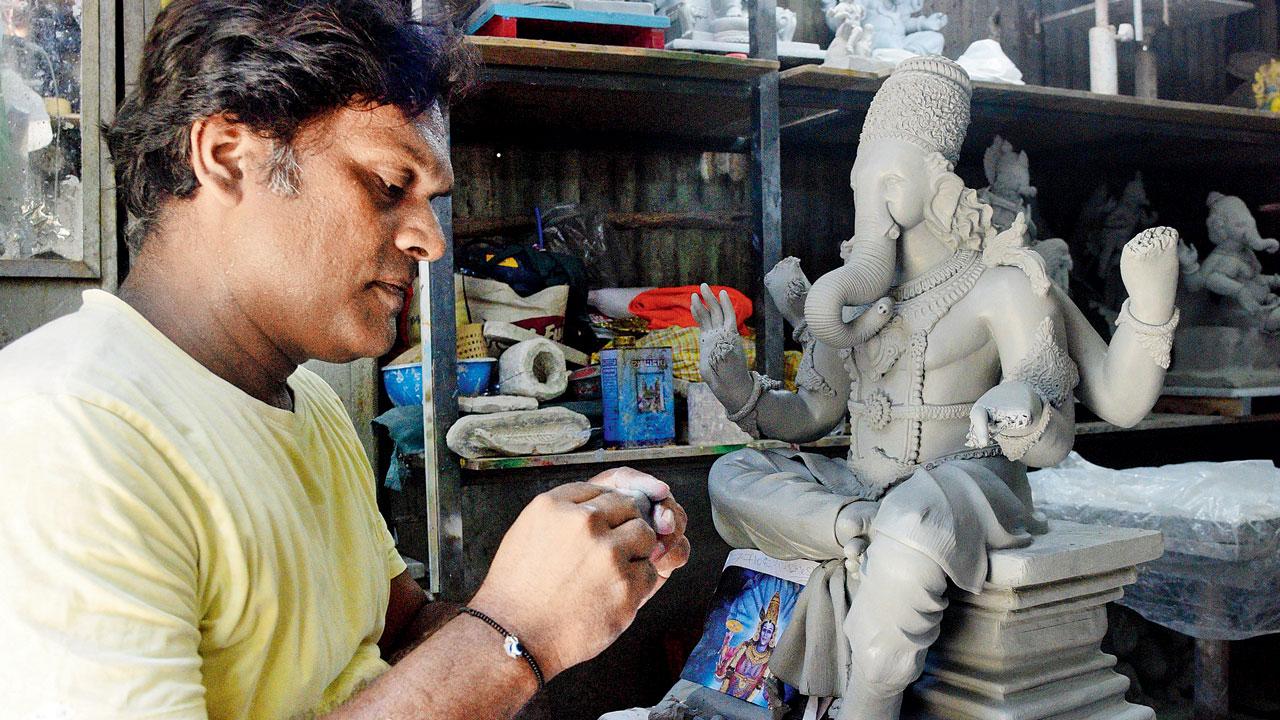BMC’s directive that four-feet-high Ganesh idols this year must be made from clay has ruffled many murtikaars. Despite the civic body’s offer of free clay to these sculptors, the community expresses their reservations about this regulation

An artist sculpts at More’s workshop in Kalbadevi. Pics/Pradeep Dhivar
Where are the clay artists?
ADVERTISEMENT

Jayesh More, the fourth-generation murtikaar, shares his concerns about the lack of clay sculptors in the city
Mumbai’s oldest Ganesh mandal at the Keshavji Naik Chawl in Girgaum, hosts a two-and-a-half-feet clay idol every year that is being sculpted by the More family since 1893. Rajendra and Jayesh More are the fourth generation of the KG More Karyshala. “Once upon a time, we used to make 1,000 clay idols during Ganeshotsav. But today, there are barely 200 orders. PoP [Plaster of Paris] made things easier for everyone,” Jayesh Shrikant More, the younger brother who runs their original workshop in Kalbadevi, claims. “Although we appreciate these eco-friendly steps, the BMC still needs to think about the lack of workforce. Clay idols are extremely difficult to create and need years of experience and expertise to master. There are not enough artists in the market. Who will fill the void that this new directive creates?” he asks.
Call: 9867711593
Such calls need time

Pen is known for its mass production of Ganesh idols. This town in Raigad district is the hub for several idol-makers for generations. Viren Patil, a third generation murtikaar from Pen, is upset with the directive. He tells us, “I make 5,000 clay idols and 5,000 PoP idols every year.

PoP idols in Viren Patil’s workshop
If the BMC sends a directive to us right before the festival, what will we do with the idols we have already made?” However, he does not fully oppose the ban on PoP. “Had we been notified about this development last year, we would not have produced so many PoP murtis. If this directive was implemented in 2024, we would have gladly followed. We expect time to execute this change.”
Call: 9834811585
Time is of essence

Ketan Vinde works on his handmade clay idol in Mahim
Ketan Vinde has been making clay idols for the past 30 years. At his small workshop in Mahim, he creates 100 to 125 Ganesh idols every year. “It is true that clay idols are eco-friendly and can help make a difference to the environment, but to make clay idols, one needs enough space and time. A single clay idol takes at least four to five days. Even if the BMC provides clay to us, it is not possible to mass-produce idols in such a short span,” he explains. Vinde adds that while time is a key issue, the new directive poses a monetary challenge as well. “Clay idols are expensive because they are time-consuming and require skill and precision. There are not many takers of these murtis. A well-planned out directive would have helped us instead of sending out last-minute notices,” Vinde states.
Call: 7977297422
 Subscribe today by clicking the link and stay updated with the latest news!" Click here!
Subscribe today by clicking the link and stay updated with the latest news!" Click here!







